I’d like to tell you about a shelter Ian and I visited on our way out of Tennessee during our trip in June. It’s taken me this long to catch up with the Animal Control Officer there to get answers to my many questions. He wasn’t avoiding me, he’s just that busy.
Zach is an example of what an ACO can be—committed, proactive, and effective. In fact, he manages to get 90% or more of the dogs that land in Lebanon Animal Control out alive. Three quarters of those dogs get out through rescue and an astounding 25% are adopted locally.
This is not the norm for too many small rural counties in the south.
We stopped at Lebanon at the urging of Laura, our host while we were in Tennessee. I think she wanted me to see not just another tough situation, but one where an ACO is doing what he was hired to do with the resources he’s given. It’s not ideal, but it’s the best it can be, considering. She warned me that sometimes dogs stay there a very long time. Since Lebanon doesn’t have to euthanize for space, that sometimes leads to lengthy stays that can wear on a dog.
We arrived at Lebanon on a 98 degree day and had two dogs with us we were transporting north for Operation Paws for Homes (they had to reshuffle a transport due to last minute technical issues and we were headed in the right direction, so we squeeze two very cooperative dogs into our vehicle for the ride north).
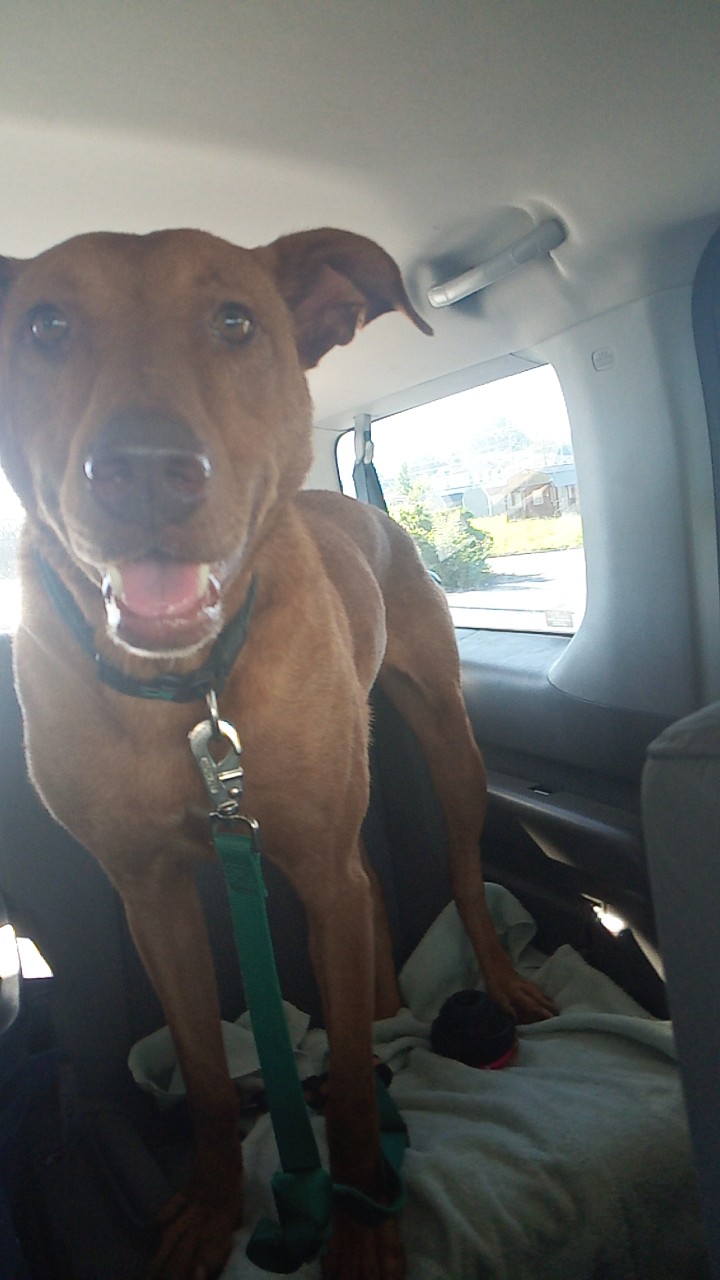
There was no shade outside the tiny shelter – a small pole building next to the construction site of the new police station. Ian had seen enough and really struggled in the heat, so he volunteered to stay with the two OPH dogs in the air-conditioned car. (This will explain the truly bad pictures in this post. All taken with my cellphone in the dimly lit shelter.)
Zach was not around, so the other ACO waved me back to meet the dogs who were housed in kennels lining the sides of the small building facing each other over a cement strip. The sound, as in all pole-building shelters was deafening, so I didn’t try to talk to the officer while he waited for me to look around.
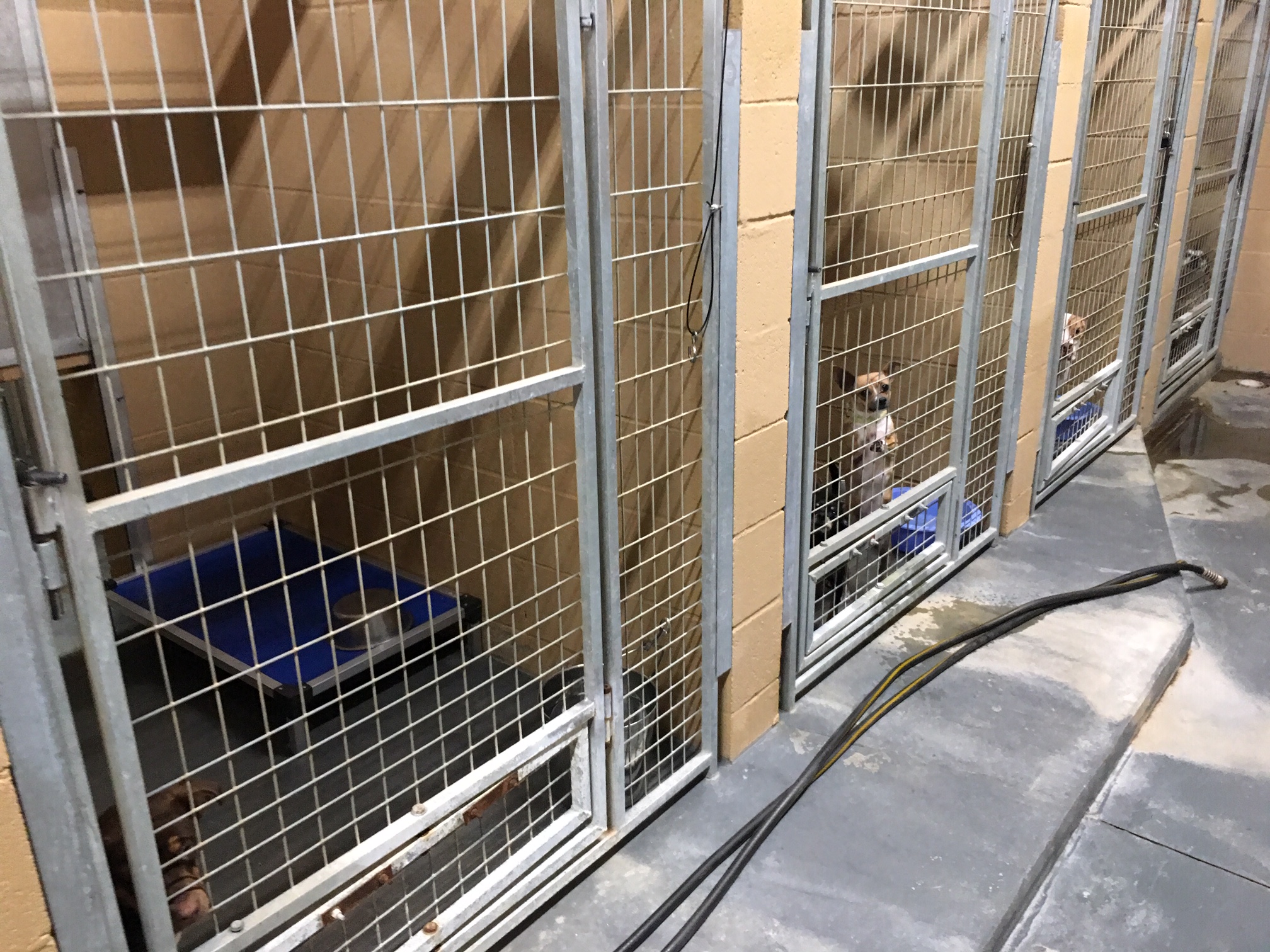
I scanned the cards as I walked through, the dogs were frantic at the sight of me and leapt at the fences. One sweet older pit bull-looking girl did the one thing that always kills me—she leaned her whole body against the fence, pressing her fur between the crosshatches, begging me just to touch her. Which I did. For as long as I could. Her face broke my heart and her gentle plea was so clear—get me out of here. Please.
I took pictures of a large white dog named Clifford who Laura said she was working hard to get out of there. He was sad and skinny and clearly did need to get out of the shelter setting. But so did all these dogs.
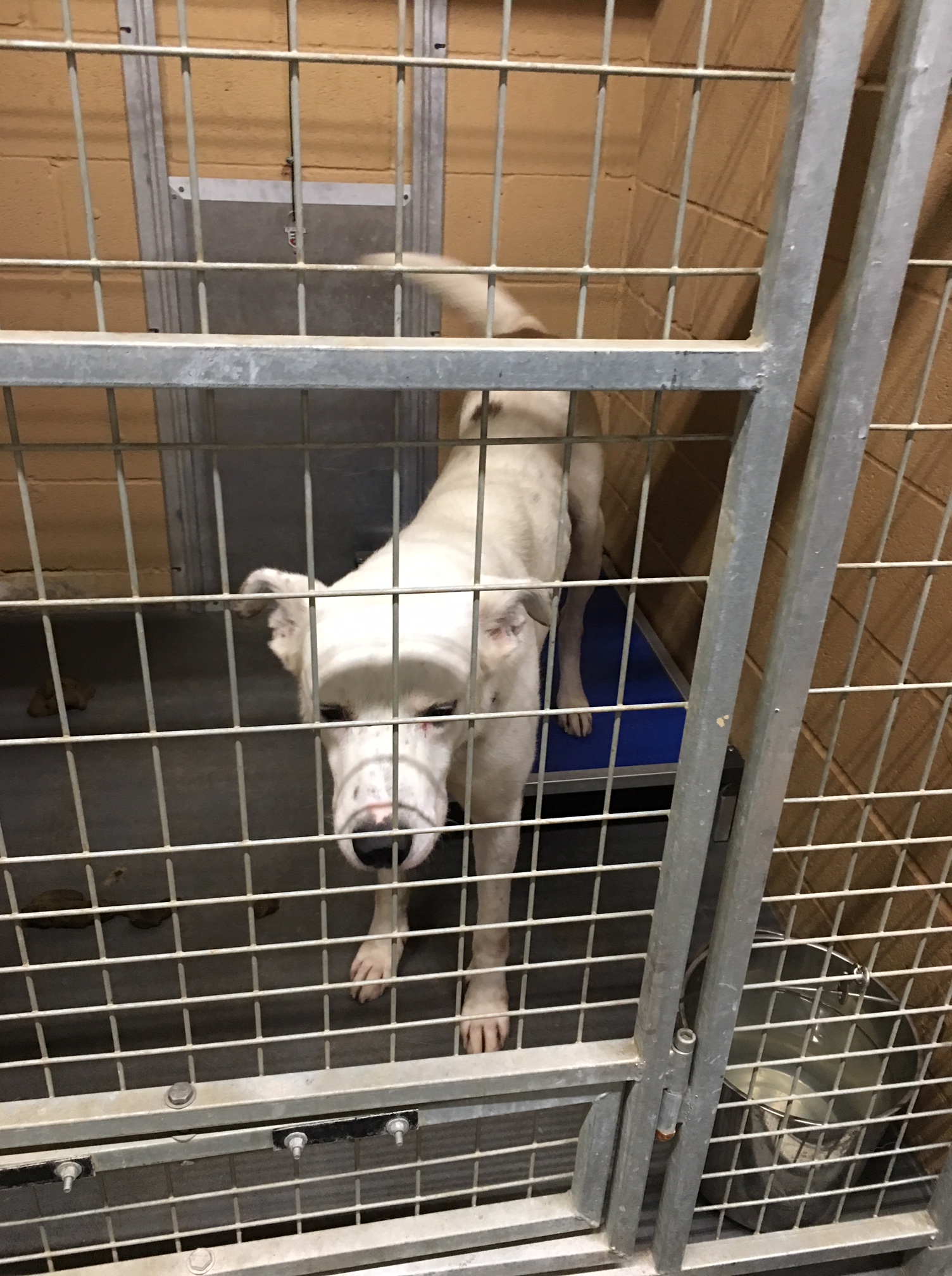
Lebanon isn’t a bad place. It is what it is—the bare minimum of care. It’s likely what the city can afford (or will afford) and it was much more than so many counties I had visited in the previous days that had only outdoor cement bunkers surrounded by barbed wire.
Lebanon handles about 200 dogs a year and Zach told me most dogs stay about 30-40 days. They get outside for a little exercise (I’m assuming for a quick walk or time in their small fenced area) weather permitting, but with no volunteers and one ACO on duty at a time, that outdoor time must be very brief. The building is dimly lit, loud, and the kennels are small—maybe four feet by four feet, with cement walls.
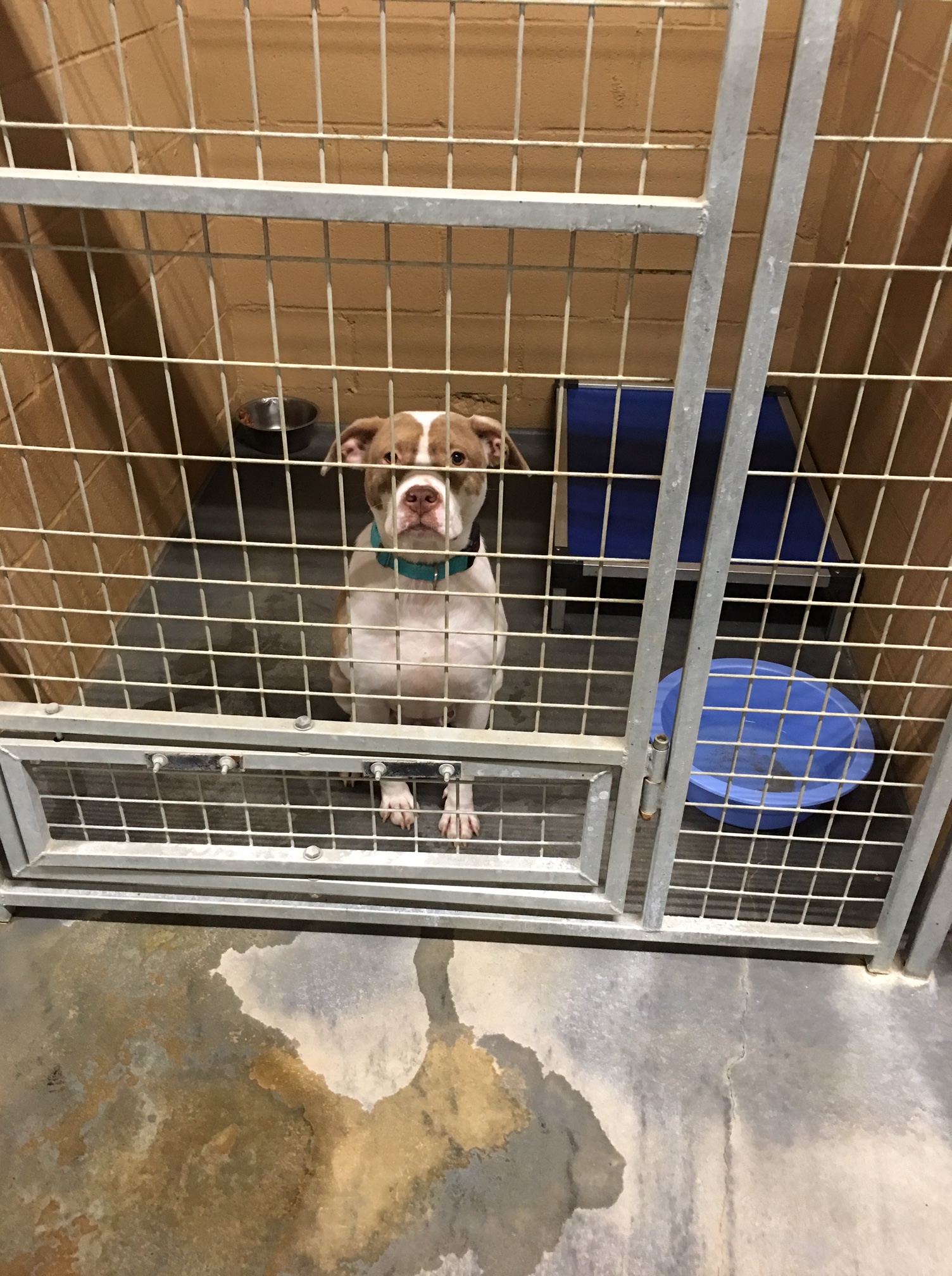
Zach told me that they do spend a lot of time with the dogs and give them toys and treats. Clearly, he is trying to make the best of a tough situation. He’s been there fourteen months. I imagine this is the kind of job that is hard on a soul.
I slipped treats to the dogs as I passed. One large, gray dog with a spiked collar stared stoically, ignoring my offered treat. I asked the ACO about him and he said he’d just come in. I asked him if he thought his owner might come for him and he shrugged his shoulders but rolled his eyes.
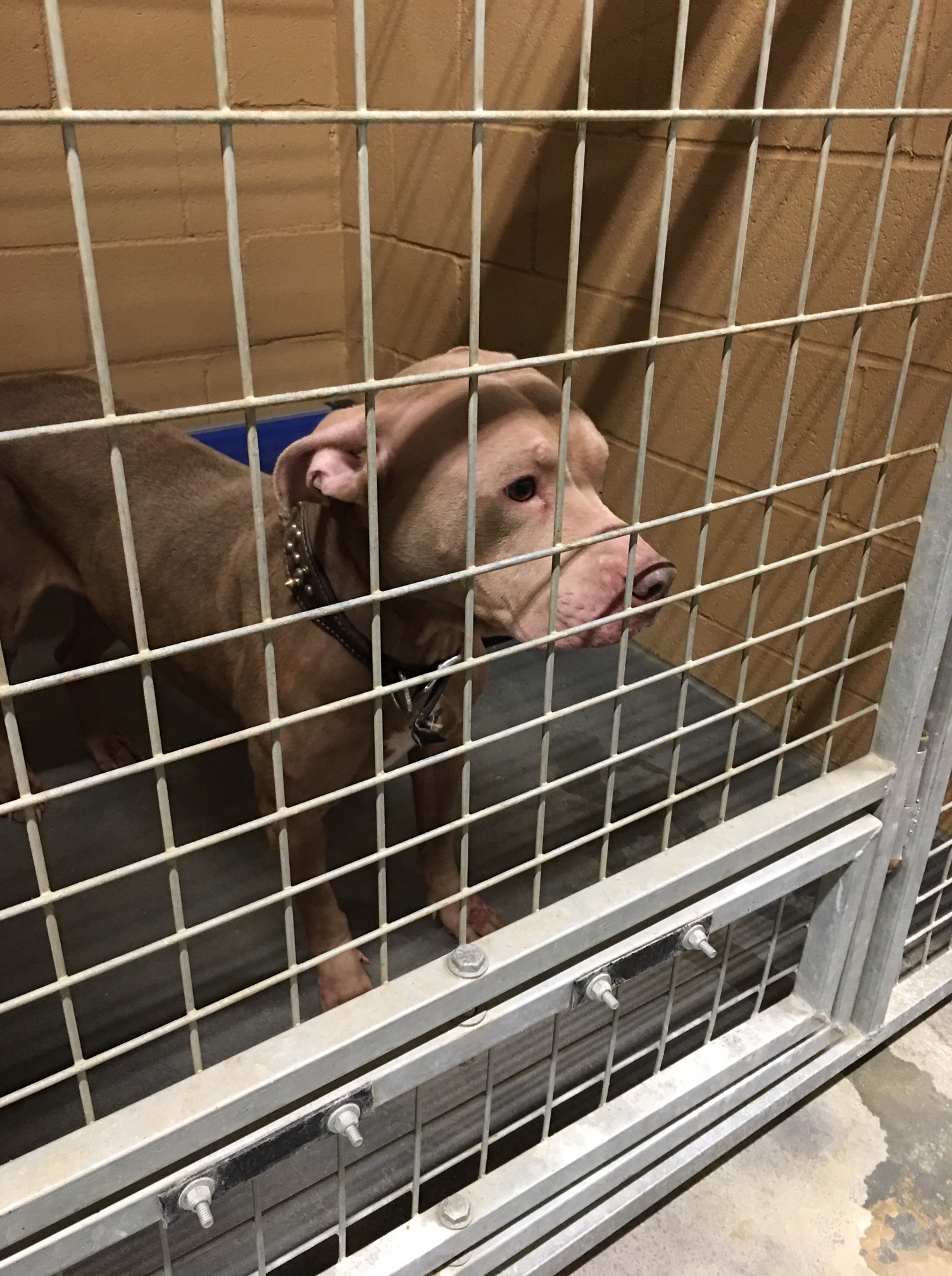
I asked about the sweet pittie girl who leaned on her fence and was told she’d been there since March (four months). The ACO flipped through his book, and I noted that the records clearly showed that the dogs were being vaccinated and wormed and cared for medically.
Compared to so many other places, Lebanon is doing well. The dogs are cared for to the full extent of their resources. As I walked out of there, I thought—this is adequate. These dogs aren’t in danger of being killed thoughtlessly like so many that I met and heard about in western Tennessee. But could their lives be better? Certainly.
And yet, I so admire Zach. He is taking what he has been given and making it work. He’s moving dogs out and keeping dogs alive. In the rural parts of this country, where people are struggling to make ends meet and governments never have enough money, a shelter like Lebanon is a shining star. They even have a Facebook page with posts about lost dogs and adoptable ones.
But it could be so much more.
Zach told me that they can desperately use donations. If you’d like to help, take a gander at their Amazon Wishlist and send what you can.
I’m busy getting ready for my next trip back to Tennessee and then on to Alabama. If you’d like to follow along, be sure to subscribe to this blog and/or follow the Who Will Let the Dogs Out Facebook page.
You can also support our work and the shelters and rescues we visit by contributing to our fundraiser for this trip and/or shopping from our Amazon Wishlist or the new Who Will Let the Dogs Out Etsy shop. The shop is a new venture and we will add new items as they are created. Thanks for any and all of your support.
I truly believe it’s not that people don’t care about what is happening to the dogs in our rural south, it’s that they don’t know.
Help me tell them.
Blessings,
Cara
If you’d like to know more about me or my writing, visit CaraWrites.com.



Martha Kennedy
<3